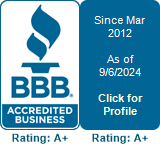At various times your "friends" at the IRS will send you notices attempting to get information or to promote some benefit that may apply to you. But, you should slow down & explore your options before you act.
Unclaimed Money
The IRS might ask for returns with the allure of unclaimed money in your IRS account. (See Notices CP80, CP81). However, as noted in "Unfiled Returns" hasty filing of returns could hurt you. Of course, you need to be prompt but you should research your options BEFORE you file.
New Address
They may ask for your new address. (See Letter 2788C & Letter 2475C) In some cases (perhaps) you don't want to be contacted by the IRS but in the vast majority of cases it is vitally important to continue to receive letters from the IRS.
The IRS uses the US Postal Service for most of their contact with taxpayers. Only in serious cases do they send a local Agent or Officer. Since you will mostly receive only normal letters from the IRS you need to keep your address updated with them. Use Form 8822 for Individuals or Form 8822B for Businesses.
Promote a Benefit
The IRS sends notices to promote a benefit, such as the Additional Child Tax Credit (Notice CP08) or the Earned Income Credit. (Notice CP09) Once again, it is important not to act rashly.
You need to determine if you are entitled to this benefit or if someone else could (or should) claim it. Try to coordinate with others who can take the deduction so you maximize the benefit.
Next, determine what is required to claim the benefit and how much it will cost to amend the return. As long as you are preparing an amended return you might as well see if further items can be claimed.
Only if you get a significant benefit should you amend your return to make the claim. Remember, filing an amended return extends the statute of limitations for ALL purposes.
Solicit an Offer in Compromise
The IRS uses Letter 278C to solicit an offer in compromise. There are many concerns with Offers in Compromise but as mentioned in "The Dangers of an Offer" simply making an Offer extends ALL statutes of limitation. This might be ill-advised.
Of course, you will be suspicious any time your adversary (friend) begs for you to sign something. Signing an Offer in Compromise carries significance against you in many ways. Thus, Offers are not advisable in many cases.
So, the IRS might contact you promising to provide some benefit but BE CAREFUL & investigate so you act in your best interest.
J. David Hopkins, JD, LLM






